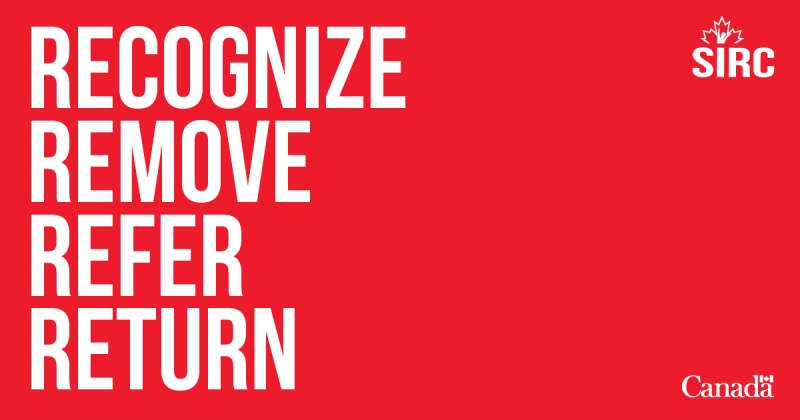Concussion is a pressing issue in sport. And few sports have been affected as acutely or as deeply as rugby.
The issue has touched people in profoundly personal ways at all levels of the sport. The tragic 2013 death of teenager Rowan Stringer, who died after sustaining multiple head injuries playing high school rugby, caused ripple effects that went well beyond sport.
For the national body governing rugby in this country, Rowan’s death drove home the importance of education and proper protocols to make the sport as safe as possible for all participants.
Rugby Canada has made huge strides in raising awareness about how to prevent and better manage concussions. Looking beyond its boundaries, there is a bigger agenda at play that takes a broader, more holistic view of concussions in sport.
“The research tells us that athletes benefit from playing multiple sports, so we’re encouraging our athletes to do that,” says Paul Hunter, Director of National Development with Rugby Canada. “We want those athletes to be happy and healthy when they come back to us. This is why we feel so strongly about the need for a consistent approach to concussion across all sports. We need to be confident that kids are going to be safe and well protected no matter what activities they’re involved in.”
Hunter is a strong supporter of a national awareness campaign hosted by the Sport Information Resource Centre (SIRC). The online hub has emerged as the “go to” source for concussion research, tips and tools. It also features the latest Canadian and international research as well as a suite of templates and sample products to help sport organizations at any level.
At the heart of the campaign are the “4 Rs” that give clear direction to everyone involved in sport – 
1) Recognize the signs and symptoms of a concussion;
2) Remove the athlete from the game or practice;
3) Refer the athlete to a healthcare professional; and
4) Return to school and then to sport based on the recommendations of a physician.
“The campaign creates a united front across the broader sport ecosystem,” says Hunter. “SIRC is the only organization doing this. Most NSOs (National Sport Organizations) don’t have the capacity or the expertise to put these protocols and tools together. The campaign and the hub basically give us everything we need.”
Hunter points specifically to policies on “Return to Learn” and “Return to Play” which he describes as “massively helpful” in getting sport organizations to recognize the importance of looking at the individual as more than an athlete and seeing them as a whole person.
“Sport can be a big part of a young person’s life, but it’s only one part,” he notes. “Concussion can affect every aspect of life and we have to recognize that we’re responsible for helping a person get back to learning, to sport, and to life in general.”
Going forward, the main focus will be prevention. Hunter says Rugby Canada will be investing its energy in sharing the campaign’s reliable, up-to-date information, particularly to coaches and officials.
“The more they know, the better they can educate the parents and players,” he adds. “As people in our sport learn more, the conversations are changing. Sometimes, emotion can overtake common sense. But the more we get the word out, the better we can help people understand the reasons behind our policies and practices that remove an athlete until it’s completely safe to return.”
This blog is part of SIRC’s #HeadstrongCanada concussion awareness, prevention and management campaign. The campaign features tools, resources, and best practices in managing and preventing concussions in sport in Canada. Developed in partnership with Sport Canada, Public Health Agency of Canada and other organizations, the toolkit offers credible information and templates recognized by stakeholders throughout the sport system.
Check out the concussion website for concussion information and tools to help your sport be concussion smart. For concussion information directly to your inbox, sign up for SIRC’s concussion newsletter.